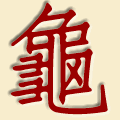
The capital of the People’s Republic of China used to be known as Peking in English and many other languages. Since 1949 it’s been known as Beijing, which is often mispronounced: the J in jing is not pronounced /ʒ/ (/Z/) as in pleasure, but more like jing, as in jingle.
Or if you want to be strictly accurate, Beijing is pronounced /pei˨˩˦ tɕɪŋ˥˥/ (/pei_\_/ ts\iN_H/), the first syllable has a rising tone, and the second has a high level tone. Where the /ʒ/ (/Z/) pronunciation for the J comes from is a mystery to me. Any ideas anyone?
Peking is the Postal System Pinyin version of Beijing. Postal System Pinyin was introduced in Shanghai in 1906 and was based on a romanization system developed by French missionaries 400 years earlier when the Chinese word for capital, 京, was pronounced /kʲiŋ/ (/k’iN/).
The literal meaning of Peking/Beijing is ‘Northern Capital’. There is also a Southern Capital, Nanjing (南京), and an Eastern Capital, Tōkyō (東京), which is Dongjing in Chinese. There is no Xijing (西京) or Eastern Capital though.
Between 1928 and 1949, Beijing was known as Beiping (北平) ‘Northern Peace’ in China because Nanjing was the capital for the Kuomintang government.
Another alternative name for Beijing is Yanjing (燕京), which refers to the State of Yan that existed during the Zhou dynasty (1022 – 256 BC).
 (
(